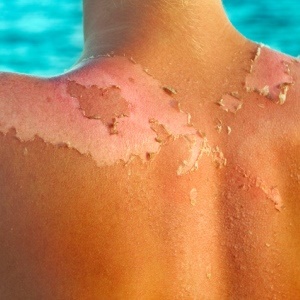
Don't invite skin cancer to your holiday weekend.
As Americans celebrate their independence at beaches, pools or backyard parties, they should remember that the sun's damaging rays are strongest between 10 a.m. and 3 p.m. – and protection is a must.
Like brushing your teeth
"When it comes to sunscreen, people in general don't put on enough, and they don't put it on as often as they should," said Dr William Huang, a dermatologist at Wake Forest Baptist Health in Winston-Salem, North Carolina.
"I tell my patients that it should become routine, like brushing your teeth. You'd feel strange if you didn't brush your teeth every day, and it should feel strange if you're not using sunscreen every day," he said in a health system news release.
The sun emits two types of ultraviolet radiation, and both do skin damage. UVA rays contribute to premature wrinkling and ageing. UVB damages surface skin cells and contributes to sunburn.
But even if you don't get a sunburn, ultraviolet radiation causes changes in skin DNA that can lead to cancer, Huang said. And everyone – not just people with fair skin – is at risk.
"We see skin cancer in people of all ages and skin types," Huang said. "Ultraviolet radiation is a carcinogen."
Most common serious skin cancer
And when it comes to skin cancer, UV radiation poses a bigger risk than smoking does for lung cancer, he said. Once your skin is damaged, it's damaged for life, Huang added.
"Much of the skin cancer that we see in people in their 50s, 60s and beyond is from sun damage they had when they were in their 30s, 20s or even younger," he said.
Basal cell carcinoma and squamous cell carcinoma account for about 97% of all skin cancers. Both appear on sun-exposed areas. When caught early, both can be removed and rarely spread to other parts of the body.
Melanoma is the most common serious skin cancer. About 200 000 Americans get it each year, and some 7 000 die from it.
"If you leave a melanoma unchecked long enough, there is a high chance it will spread," Huang said. "On the other hand, if a melanoma is identified early it can be removed without complications in most cases."
Greater overall awareness
Check your body for new bumps, spots, scaly patches or other abnormalities, and look for changes in moles, freckles or birthmarks. These are the best ways to find skin cancer before it gets out of hand.
"Skin cancer is one of the most preventable forms of cancer out there, and there's greater overall awareness today that overexposure to the sun isn't good for your health," Huang said. "But we still see lots of people engaging in risky behaviours."
To reduce your risk, the American Academy of Dermatology recommends:
- Limiting sun exposure between 10 a.m. and 3 p.m., when the sun is strongest.
- Wearing protective clothing – long-sleeved shirt, long pants, wide-brimmed hat and sunglasses.
- Avoiding tanning beds and sunlamps.
- Using water-resistant sunscreen of SPF 30 or higher.
Image credit: iStock




 Publications
Publications
 Partners
Partners











